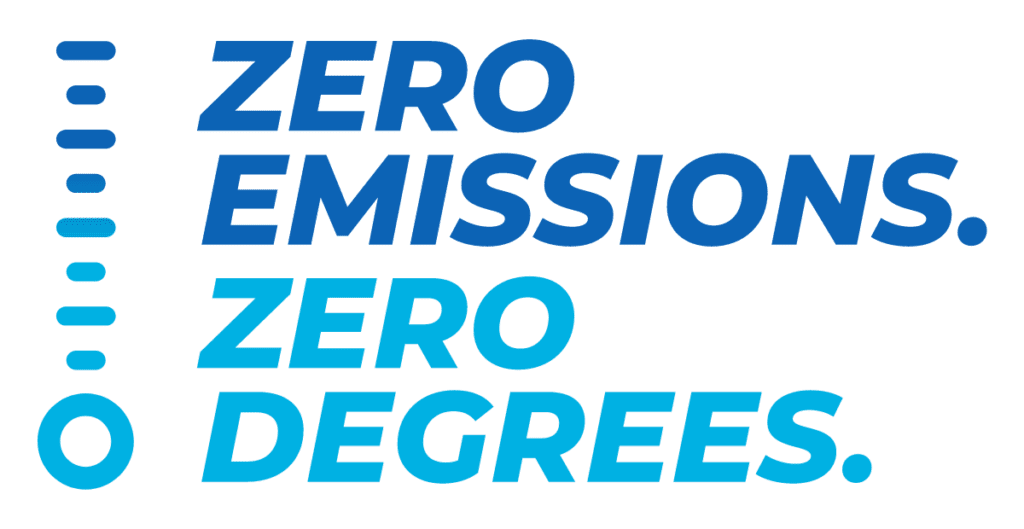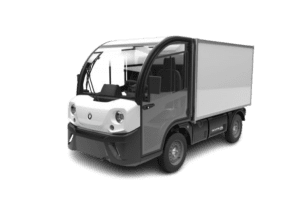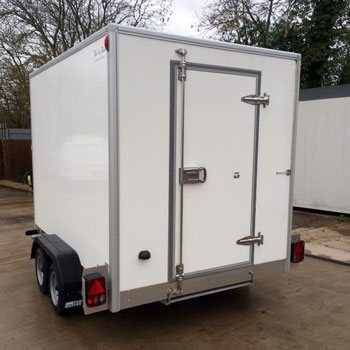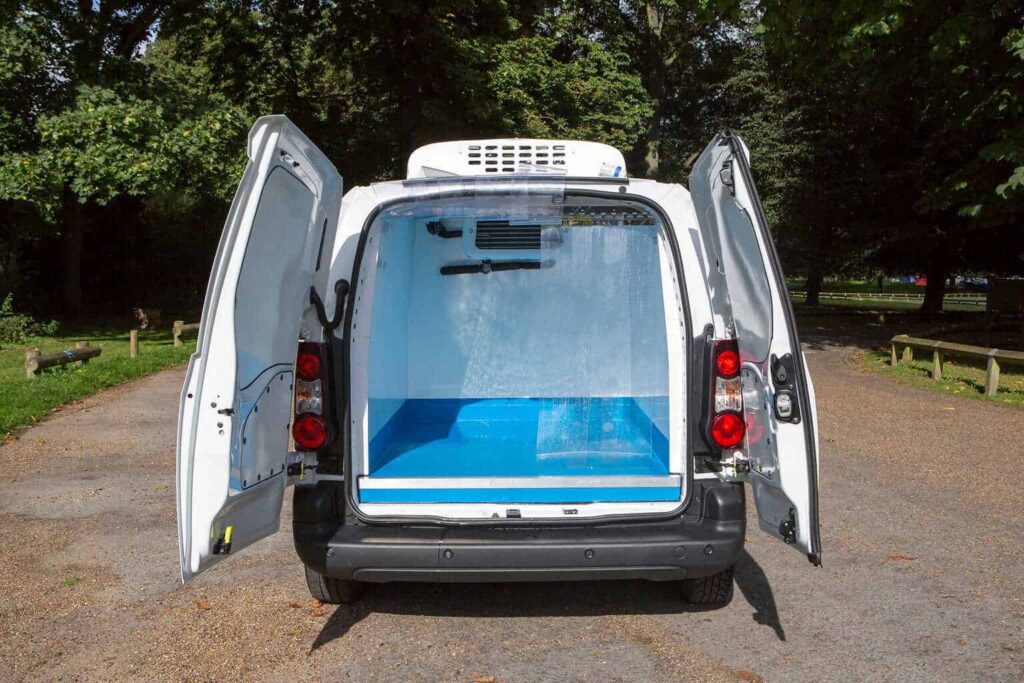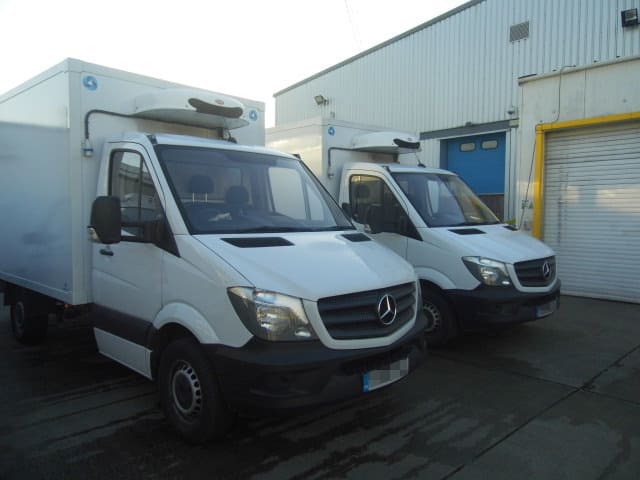The global push toward sustainability has reached a critical juncture. With governments, businesses, and consumers increasingly prioritising environmental responsibility, the race to achieve net-zero emissions is reshaping industries worldwide.
While in America, the new Trump administration appears to be rolling back on climate change initiatives and focus ever more deeply on fossil fuels, the rest of the world is looking to make significant changes. The UK has set ambitious targets to reach net zero by 2050, compelling businesses to rethink their operations and adopt greener practices.
Refrigerated transport is a vital cog for many businesses, including those in the food and beverage, pharmaceutical, and logistics industries. The energy demands of maintaining temperature-controlled environments, coupled with a historic reliance on fossil fuels, make it a significant contributor to carbon emissions.
The Challenges Facing Refrigerated Transport
As businesses strive to align with sustainability goals, they must navigate a complex landscape of regulatory demands, infrastructure limitations, and operational hurdles.
Regulatory Compliance: The ZEV Mandate and Upcoming Deadlines
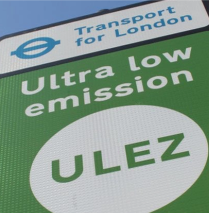
As Operations Director Craig Diaz puts it: “For businesses relying on refrigerated vans, this means transitioning to electric or alternative fuel vehicles, a shift that comes with significant financial and logistical implications. Meeting these deadlines is no small feat. Electric refrigerated vans must not only comply with stringent emission standards but also deliver the same level of reliability and performance as their traditional counterparts.”
For many businesses, the cost of upgrading fleets and the uncertainty around vehicle availability pose significant barriers to compliance. This is particularly true for smaller businesses where investing in sustainable practices can be costly and often prohibitive.
Infrastructure Barriers: The Challenges of EV Charger Installation and Adoption
Even as electric refrigerated vans become more accessible, the availability of charging infrastructure remains a critical obstacle. Unlike standard EVs, refrigerated vans require an extra charging supply to ensure that the fridge can still operate while the vehicle is charging. While this is not such a problem in depots or business addresses, service stations or on-street parking charging bays currently do not support this.
Moreover, the UK’s public charging network, while expanding, is still not fully equipped to support the needs of refrigerated transport. Charging times and the limited availability of chargers capable of handling larger vehicles can disrupt delivery schedules and increase operational costs. For businesses operating in rural or underserved areas, these challenges are even more pronounced.
Operational Efficiency: Balancing Sustainability with Temperature Control and Logistics
Perhaps the most complex challenge lies in maintaining operational efficiency while transitioning to sustainable practices. Refrigerated transport is inherently energy-intensive, as maintaining precise temperature control is critical for preserving the integrity of perishable goods. Electric refrigeration systems, while cleaner, must deliver consistent performance across varying conditions and long distances.
Additionally, businesses must balance the need for sustainability with the demands of tight delivery schedules and complex logistics. Any disruption—whether due to charging requirements, vehicle range limitations, or technical issues—can have a cascading effect on supply chains. Achieving this balance requires not only the advanced technology but also strategic planning and operational expertise.
The FridgeXpress Solution: Consultancy for a Greener Future
As businesses grapple with the challenges of transitioning to sustainable refrigerated transport, FridgeXpress emerges as a trusted partner, offering not just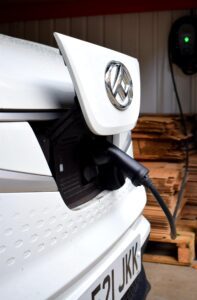
Unlocking Grant Opportunities: Navigating EV Charger Grants and Subsidies
One of the most significant barriers to adopting electric refrigerated vans is the cost of installing the necessary charging infrastructure. Recognising this with their charging partner Charged EV, FridgeXpress offers expert guidance on accessing government grants and subsidies designed to offset these expenses. Programmes such as the Workplace Charging Scheme (WCS) and other local incentives can significantly reduce the financial burden of installing EV chargers.
By unlocking these opportunities, FridgeXpress helps businesses invest in the infrastructure they need to support their transition to electric fleets, making sustainability both achievable and affordable.
Integrating Micromobility Solutions: Electric Urban Utility Vehicles and Cargo Bikes Electric Cargo Bikes
For businesses operating in urban areas, micromobility solutions such as electric urban utility vehicles and electric cargo bikes with refrigerated units offer a sustainable and efficient alternative for last-mile deliveries. These compact, zero-emission vehicles are ideal for navigating congested city streets, reducing delivery times, and lowering carbon footprints.
FridgeXpress helps businesses identify use cases where refrigerated micromobility solutions can complement their existing fleets. Whether it’s delivering perishable goods to local restaurants or transporting medical supplies within a city, electric utility vehicles and e-cargo bikes provide a flexible, cost-effective option for short-distance logistics.
By integrating these solutions, businesses can enhance their sustainability credentials while improving operational agility.
According to Craig Diaz: “The micromobility electric vehicles (EVs) that are now part of our fleet include the Goupil G4 and the Alke ATX. These meet the growing demand from our food and pharmaceutical customers to deliver perishable goods. The new vehicles form part of our sister company, Northgate’s Drive to Zero° initiative which reduces the emissions of its hire fleet and that of its customers.”
Custom Sustainability Strategies: Tailored Roadmaps for Business-Specific Goals
Every business is unique, and so are its sustainability challenges. FridgeXpress takes a bespoke approach, developing custom sustainability strategies that align with each client’s specific goals, operational requirements, and industry demands.
Through detailed consultations, we can create tailored roadmaps that outline actionable steps for achieving net zero. These may include a mix of fleet electrification, infrastructure upgrades, operational optimisations, and innovative solutions like micro-mobility.
By addressing both immediate needs and long-term objectives, we ensure that businesses can transition to sustainable refrigerated transport at their own pace, without compromising on performance or profitability.
“It’s key,” says Craig Diaz, “that we work closely with businesses, large and small, to help deliver what they can at the right pace. It’s often a difficult balancing act that requires a tailored approach depending on resources and objectives.”
Why Choose FridgeXpress?
In a rapidly evolving landscape where sustainability and operational efficiency are becoming more and more important, FridgeXpress stands out as a leader in refrigerated transport solutions.
Craig Diaz explains: “With a unique blend of industry expertise, innovative thinking, and a commitment to environmental stewardship, we think we are the ideal partner for businesses navigating the transition to net zero. We focus exclusively on refrigerated transportation and we have more than 20 years of expertise behind us. That’s something our customers appreciate.”
Commitment to Operational Efficiency and Environmental Goals
We believe that sustainability and efficiency go hand in hand. We are committed to helping businesses achieve their environmental goals without compromising on performance or reliability.
By offering end-to-end solutions that address every aspect of the transition, we help ensure that businesses can operate sustainably while maintaining the highest standards of service.
Our focus on innovation means that clients are always at the forefront of industry advancements. Whether it’s adopting cutting-edge refrigeration technology or exploring new delivery models like electric cargo bikes, we help empower businesses to stay ahead of the curve.
A Trusted Partner for the Future
Choosing FridgeXpress means more than just hiring a refrigerated van provider. It means partnering with a company that is deeply invested in your success. With a proven track record of helping businesses achieve their sustainability goals, FridgeXpress is the trusted partner you need to navigate the complexities of the drive to net zero.
As Adam Naylor, Managing Director, puts it: “Sustainability isn’t just a trend. It’s the future of refrigerated transport. At FridgeXpress, we’re proud to lead the way, helping businesses across the UK embrace this future with confidence and clarity.”
Take the First Step Toward a Sustainable Future
If your business is ready to embrace the drive to zero, FridgeXpress is here to guide you every step of the way.
Contact FridgeXpress today to learn more about our tailored consultancy services and discover how we can help you achieve your sustainability goals. Together, we can build a greener, more efficient future for refrigerated transport.

